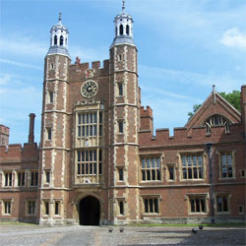The NCVO will urge the charity tribunal to consider the wider potential ramifications that the decisions it makes on public benefit and private schools could have on other fee-charging charities and the sector as a whole.
The NCVO has published the witness statement it intends to rely on as an intervener in the judicial review case on the Charity Commission’s public benefit guidance that will be heard by the tribunal next month.
It said: “Any decision made in these proceedings will not only affect fee-charging independent schools but potentially all fee-charging charities including playgroups, nurseries care homes, private hospitals and other healthcare charities, museums, theatres and other visitor attractions, amateur sports clubs, advice centres, veterinary care charities, heritage and visitor attractions, housing associations, care homes and almshouses. Indeed, the decisions the tribunal makes are highly likely to affect the sector as a whole.”
The NCVO said it has a direct interest in the clarification of the issues raised because in light of the Charity Commission’ budget cuts, it is likely to take on a greater role in providing advice to charities on issues including compliance with the public benefit requirement.
It said it agreed with Ed Miliband’s view that for charities that charge high fees, benefits must extend beyond the narrow range of people that can afford the fees.
“NCVO considers that, if the fees that a charity charges reach such a level that it significantly excludes or prevents access, this begs the question whether the organisation can genuinely be serving a sufficient section of the pubic to be charitable.”
It said that if the fees are so high that very few can afford them, then unless there are other direct or indirect benefits to redress the balance, “the de facto class of beneficiaries could fall short of amounting to a section of the public”.
While the NCVO does not think the Commission has misdirected itself as to the law, it regards its guidance on public benefit as lacking clarity. “The guidance and assessment reports have created confusion and uncertainty.”
It suggests the guidance should not just explain the public benefit requirement but should extend to giving illustrative examples of the different ways charities could be administered to ensure the requirement is met.
It also argued that the question of what is for the public benefit is not purely a legal question which can be answered by reference to decided cases alone. “Public benefit, like the concept of charity itself, is dynamic: it alters with changing social and economic conditions.”
NCVO argues that each case should be considered on its own merits, but if a fee-charging charity cannot provide its services to more than a few people who can’t afford its fees, then radical changes may be required such as merger with another charity or becoming an academy. “NCVO considers this is the inevitable result of the abolition of the presumption of public benefit under the 2006 Act.”
However, it disagrees with the position of the second intervener, the Education Review Group, that account should be taken of incidental adverse effects on the quality of pupils attending other schools in the area.
The judicial review is being sought by the Independent Schools Council. At the same time the tribunal will also consider a reference from the Attorney-General, requesting clarification of how the public benefit test applies to fee-charging schools.










